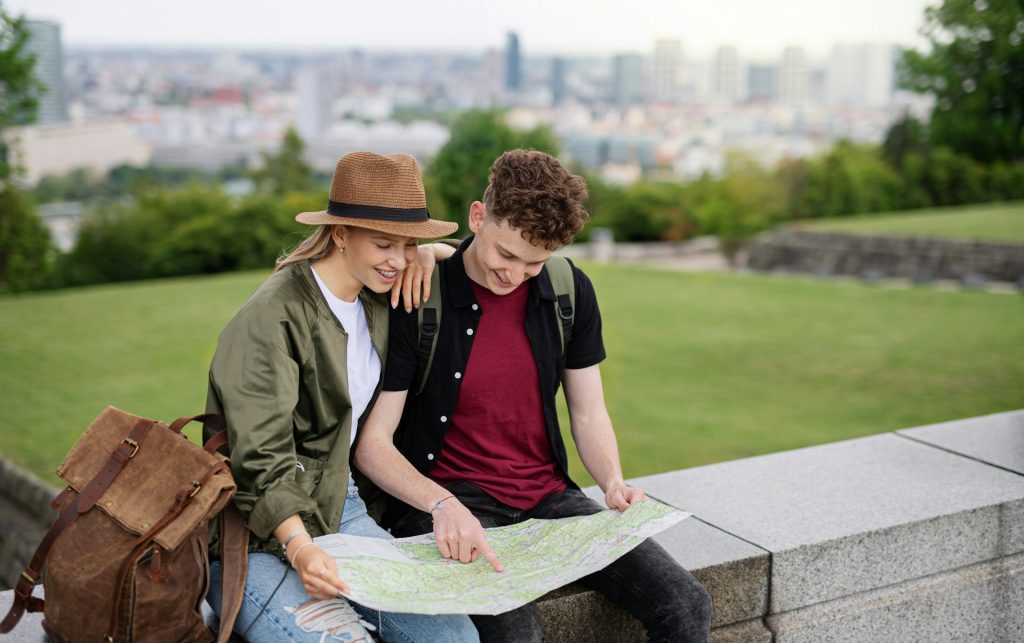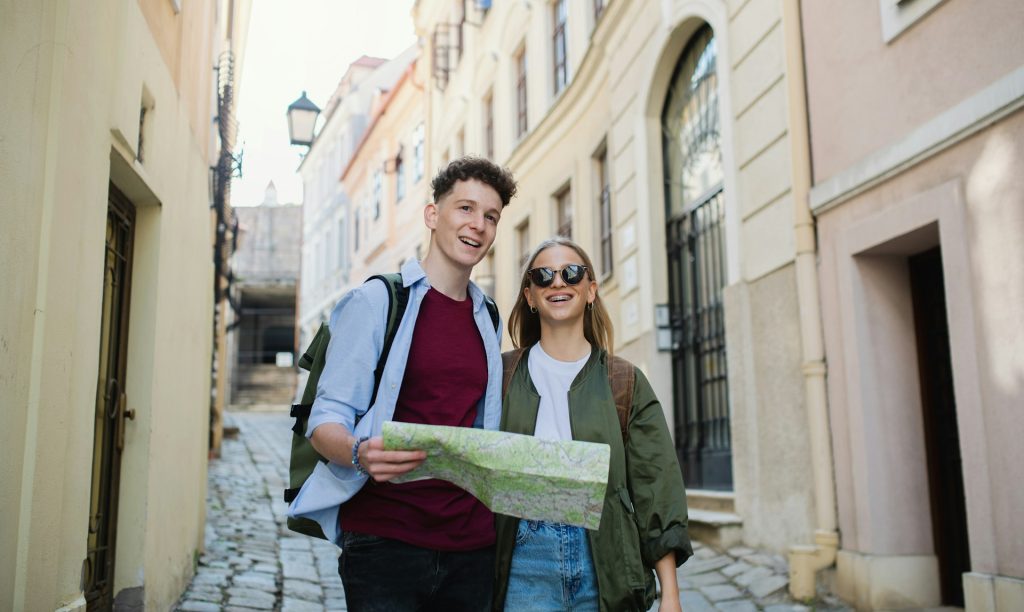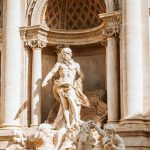Table of Contents
When we step into unfamiliar surroundings, our brains naturally go into high alert. Every sight, sound, and smell becomes more vivid, more worthy of our attention. This heightened state of awareness is like a superpower for travelers.
Breaking the Autopilot: Escaping Routine Perception
At home, it’s easy to fall into routines that dull our observational skills. We walk the same streets, see the same sights, and our brains filter out what it deems unnecessary information. Travel disrupts this autopilot mode, forcing us to engage more fully with our environment.
During a trek through the Himalayas, I realized how much I typically miss in my day-to-day life. The way sunlight filters through leaves, the texture of rocks underfoot, the subtle changes in bird calls throughout the day – these details, once noticed, enriched my experience immeasurably.

The Photographer’s Eye: Framing Your World
Taking up photography as part of my travels taught me to see the world through a new lens, quite literally. It wasn’t about capturing picture-perfect scenes, but about training my eye to spot interesting compositions in everyday moments.
I began to notice how light and shadow play across buildings, how people’s expressions change in fleeting moments, and how seemingly mundane objects can become fascinating subjects when viewed from a different angle.
This photographer’s eye has stayed with me, enhancing how I perceive the world even when I’m not behind the camera.
Cultural Nuances: Reading Between the Lines
Travel hones our ability to pick up on subtle cultural cues and non-verbal communication. In Japan, I learned to pay attention to the slightest bow, the careful placement of business cards, and the unspoken rules of public behavior.
These observations went beyond mere etiquette. They opened up a deeper understanding of the values and social structures that underpin different cultures. This attention to detail has made me a more perceptive and empathetic communicator in all areas of my life.
The Taste of Place: Developing a Culinary Vocabulary
Food became my gateway to understanding local cultures on a more intimate level. As I sampled street food in Bangkok or sipped wine in Tuscany, I learned to pay attention to subtle flavors, textures, and aromas.
This culinary awareness extended beyond just enjoying meals. It led me to notice the agricultural practices that shape landscapes, the social rituals surrounding food preparation and consumption, and the way local ingredients reflect a region’s history and geography.
Nature’s Details: Finding Wonder in the Small Things
Eco-tourism experiences taught me to appreciate the minute details of the natural world. On a wildlife safari in Tanzania, our guide’s ability to spot and identify animals from the tiniest clues – a distant movement, a particular bird call – was nothing short of miraculous.
Inspired, I began to practice this level of observation in nature wherever I went. I discovered the joy of identifying local flora, tracking animal prints, and understanding ecosystems through careful observation. This newfound appreciation for nature’s intricacies has enriched my outdoor experiences, whether I’m in a far-flung wilderness or a local park.
Architectural Stories: Reading the Built Environment
As I explored cities around the world, I learned that architecture tells stories to those who know how to read them. In the narrow alleys of Venice, I began to notice how buildings lean into each other, how doorways sit above water level, telling the story of a city perpetually negotiating with the sea.
This architectural literacy has changed how I see my own city. I now notice the layers of history in building styles, the way urban planning reflects social values, and how public spaces shape community interactions. Every street has become a text waiting to be deciphered.
The Art of People-Watching: Human Nature Unveiled
Some of my most profound travel experiences have come from simply sitting and observing people in public spaces. In a Parisian café, I watched the intricate dance of social interactions unfold – the subtle flirtations, the business deals being struck, the silent understanding between long-time friends.
This practice of mindful observation has not only provided endless entertainment but has also deepened my understanding of human nature. I’ve become more attuned to body language, better at reading social dynamics, and more appreciative of the small moments that make up the human experience.

Soundscapes: Tuning into the World’s Orchestra
Travel taught me to listen more carefully to the world around me. Each place has its unique soundscape – the rhythmic chants of a Moroccan market, the gentle lapping of waves on a Greek island, the cacophony of horns and voices in an Indian city.
By paying attention to these auditory details, I gained a deeper sense of place and culture. I learned to distinguish between bird species by their calls, to recognize the emotional nuances in unfamiliar languages, and to appreciate the musical quality of everyday sounds.
The Detective’s Mindset: Solving Travel Puzzles
Navigating unfamiliar places often feels like solving a series of puzzles, which naturally sharpens our observational skills. Deciphering a foreign subway map, finding a hidden local restaurant, or understanding an unfamiliar cultural practice all require keen attention to detail.
I found myself adopting a detective’s mindset, looking for clues in my environment to understand and navigate new situations. This problem-solving approach, honed through travel, has proven invaluable in tackling challenges in my professional and personal life.
Journaling: Capturing the Details
Keeping a travel journal became my way of processing and preserving the wealth of observations each day brought. The act of writing forced me to reflect on what I had seen, heard, and experienced, cementing these details in my memory.
Over time, I noticed that my journal entries became richer and more nuanced. I was capturing not just events, but sensory details, emotional responses, and cultural insights.
This practice of reflective writing has enhanced my ability to articulate and analyze my experiences long after the journey has ended.
Mindfulness in Motion: The Zen of Travel
Travel, at its best, is a form of moving meditation. As I learned to be more present and observant during my journeys, I found that this mindfulness spilled over into other areas of my life.
Whether navigating a busy Tokyo intersection or a tranquil Kyoto garden, I practiced being fully present in the moment, absorbing every detail. This heightened awareness has become a valuable tool for managing stress and finding joy in everyday experiences.
The Ripple Effect: Bringing Observational Skills Home
The sharpened observational skills I developed through travel didn’t disappear when I returned home. Instead, I found myself noticing details in my familiar environment that I had overlooked for years.
The way morning light hits my local coffee shop, the diverse accents and languages in my city’s streets, the subtle changes in my neighborhood throughout the seasons – my hometown became a new place to explore with fresh eyes.
Cultural Collisions: Noticing the Familiar in the Foreign
As I traveled more, I began to notice fascinating intersections of cultures. In a remote Peruvian village, I spotted a child wearing a t-shirt with an American superhero. In a Tokyo sushi restaurant, I heard a jazz standard playing softly in the background.
These moments of cultural collision made me more attuned to the complex web of global influences that shape our modern world. I began to see my own culture through new eyes, noticing things I had previously taken for granted.
The Artist’s Way: Sketching Your Observations
Inspired by the detailed sketches in historical travel journals, I took up the practice of quick sketching during my trips. This wasn’t about creating masterpieces, but about training myself to really see what was in front of me.
As I sketched street scenes, architectural details, or local flora, I found myself noticing things I would have missed with a mere glance. This practice of visual note-taking deepened my connection to each place and has become a cherished part of my travel routine.

Your Passport to Perceptiveness
Each journey has become not just an exploration of new places, but an opportunity to see the world – and myself – more clearly. Your passport isn’t just a ticket to new destinations – it’s an invitation to a more observant, detailed, and deeply experienced life.

I’m Simon St John, an editor who thrives on finding the profound moments in travel. With a background in crafting engaging stories for all generations, I delve into both grand adventures and simple discoveries. Through Tripnosis.me, I aim to showcase how travel can be a powerful catalyst for personal growth and deeper connections. My goal is to present fresh narratives that inspire and redefine your travel experience.




